
by Salma (Canada) | Apr 18, 2014 | 2014, Death and Dying, Kids, Life Lesson, Loss of Child, Motherhood, Religion, Salma, World Motherhood, Younger Children
 We read about it as young children in folklore and fairy-tales. If we grew up in religious homes, we were taught about various aspects of it, without a full understanding of what it all meant. While I have a different outlook at this stage in my life, I try to shield my children from the pain of it. We can all agree that death (or the idea of dying) is scary.
We read about it as young children in folklore and fairy-tales. If we grew up in religious homes, we were taught about various aspects of it, without a full understanding of what it all meant. While I have a different outlook at this stage in my life, I try to shield my children from the pain of it. We can all agree that death (or the idea of dying) is scary.
In January 2010 I became a Peer Infant Loss Support Worker; two months later I was pregnant with my first Rainbow baby. Last year I applied to volunteer at a palliative care facility. Having dealt with loss, being younger than most of the volunteers, and since I was going through the process of grieving my infant son who passed away in 2009, the coordinator was sure that I was just what the program needed. Interestingly, I became pregnant soon after. Call me superstitious, however, at this point, I came to one conclusion – I’d had enough with death – I needed a break. I quickly resigned.
While my resignation was totally unreasonable and my actions irrational, I never looked back until I gave birth to a healthy baby girl. After the death of my father in 1993 I began thinking about death; but it wasn’t until the death of my infant son that I began searching, speaking and learning about the practices, rituals and beliefs surrounding life and death. For instance, before my son’s death, I knew nothing about Islamic burial practices. My husband, who had been to a couple of funerals also had no idea what to do. Our lack of knowledge, coupled with grief made it extremely difficult to process the practice of what was being done and why.
It was not until after the death and burial, that I truly began to understand the Islamic view on death and dying. Muslims believe that human existence continues after death in the after-life, and that we are judged on our actions from this life. We are taught to prepare for the after-life by doing good deeds in this life. Upon death, the corpse is washed by family members, shrouded in a white cloth, buried on its right side, with the head facing Mecca.
After our experience I began to ask questions about death and dying. While I am by no means an authority on these practices, I have connected with many women who have shared their experiences. In our dialogue, I have learned about Tibetan Buddhist rites of passage and the Tibetan Book of the Dead, various Christian ideas like Catholicism’s idea of purgatory and resurrection. I also learned about practices, like Balinese Hinduism death towers and the Jewish ritual of Shiva.
Death is frightening. Words like eternal life and afterlife can be comforting and scary simultaneously, especially for those of us who connect these words with thoughts of retribution and judgement. A few years ago, a Social Worker noted: “…parents aren’t supposed to bury their children.” I’ve heard this before, but I don’t really believe or subscribe to this thought. I learned that life is a journey, and we are all here for different reasons. Sometimes our road takes us farther than others.
So has my experience with burying a loved one made it easier for me to swallow the concept of my mortality? Has my cross-cultural knowledge made it easier to speak about it? Not really. Without a doubt, death is central to our existence. I am not blind to the reality of it, especially when it seems imminent (watching a friend or family living with serious diseases), but I don’t want to deal with it unless I have to.
What practices/beliefs about death and after-life do you hold?
This is an original post written for World Moms Blog by Salma. You can find Salma blogging at Party of Five in Calgary.
Photo credit to the author.

An Imperfect Stepford Wife is what Salma describes herself as because she simply cannot get it right. She loves decorating, travelling, parenting,learning, writing, reading and cooking, She also delights in all things mischievous, simply because it drives her hubby crazy.
Salma has 2 daughters and a baby boy. The death of her first son in 2009 was very difficult, however, after the birth of her Rainbow baby in 2010 (one day after her birthday) she has made a commitment to laugh more and channel the innocence of youth through her children. She has blogged about her loss, her pregnancy with Rainbow, and Islamic life.
After relocating to Alberta with her husband in 2011 she has found new challenges and rewards- like buying their first house, and finding a rewarding career.
Her roots are tied to Jamaica, while her hubby is from Yemen. Their routes, however, have led them to Egypt and Canada, which is most interesting because their lives are filled with cultural and language barriers. Even though she earned a degree in Criminology, Salma's true passion is Social Work. She truly appreciates the beauty of the human race. She writes critical essays on topics such as feminism and the law, cultural relativity and the role of women in Islam and "the veil".
Salma works full-time, however, she believes that unless the imagination of a child is nourished, it will go to waste. She follows the philosophy of un-schooling and always finds time to teach and explore with her children. From this stance, she pushes her children to be passionate about every aspect of life, and to strive to be life-long learners and teachers. You can read about her at Chasing Rainbow.
More Posts - Website

by Mannahattamamma (UAE) | Mar 19, 2014 | 2014, Computers, Cultural Differences, Culture, Education, Expat Life, Government, Homeschooling, Living Abroad, Multicultural, Older Children, Politics, Religion, School, Social Media, Traditions, UAE, USA
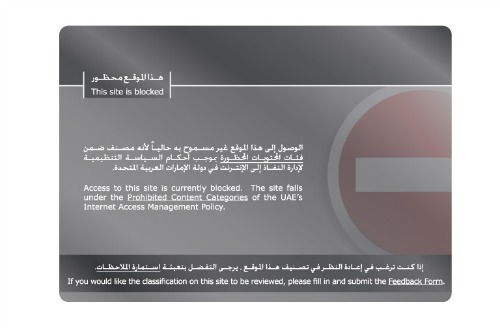 I always swore I would never home-school my children. I know many people do, and do it quite successfully, but I’m awfully fond of the quiet that descends on my house after they’ve tromped off to school. If that tromping were only happening from the bedroom to, say, the kitchen table, I think I might simply lock myself in the bathroom and never come out.
I always swore I would never home-school my children. I know many people do, and do it quite successfully, but I’m awfully fond of the quiet that descends on my house after they’ve tromped off to school. If that tromping were only happening from the bedroom to, say, the kitchen table, I think I might simply lock myself in the bathroom and never come out.
But as so often happens, my vow has collided with reality and I have found myself, in recent weeks, trolling home-schooling websites in search of teaching resources. My kids are now 9 (nine and a half, he would say indignantly) and 13; they go to a British school here in Abu Dhabi. That means they’ve spent a lot of time learning various English kings and queens, although they can’t recite them all in order. They study “maths,” and do prep rather than homework; they study English history and geography; they read mostly English writers in their literature classes. In addition to all those Anglo studies, they take Arabic language classes four days a week and once-weekly class called “Islamic Studies.” The Arabic classes are mandated by ADEC (Abu Dhabi Education Council) and I have to say, I’m much more interested in my kids learning Arabic than I am in their ability to name all the English kings and queens.
Having the boys be in an English system has been a learning curve for all of us. We’re learning two languages, actually, Arabic and, well, English: the boys now live in a world where things are “grey,” luggage goes in the “boot,” and we put garbage in the “bin.”
I’m not considering a dabble in the home-schooling system in order to beef up my boys’ appreciation of the Queen’s English, however. My kids, like every schoolchild in the country, have a curriculum that is at least in part determined by the UAE government, and that means there are things that aren’t supposed to be taught. I live in a place where censorship happens and where, unlike the States, the policies cannot be overtly challenged in the courts. So, for instance, in the States if you live in a town where they want to ban the Harry Potter books, you can take the school district to court. Not here.
We had to sign a permission slip so that our older son could get the science textbook that included the chapter on reproduction (with pictures of, you know, the embarrassing bits); his Latin class translates vinum as … grape, not wine. These are relatively small annoyances, although of course they are far from ideal.
There are, however, more serious concerns in terms of what shouldn’t be included in history courses and literature courses, and that’s where I find myself trolling the home-schooling sites for resources. The Holocaust can’t be taught here; Israel and Judaism are not supposed to be mentioned here; communism isn’t supposed to be discussed; evolution isn’t supposed to be taught; and the list goes on. Sometimes it feels as if we’re living in some kind of Bible-thumping town in the rural U.S and I realize, yet again, that fundamentalism can be seen as a global phenomenon that differs only in the nature of its prohibitions: the fear that motivates the prohibitions stays constant.
Before you leap to any conclusions, please know that the Muslim families I know are as frustrated by these government-issued edicts as are the non-Muslim families and many of us have talked together about what we can do to help our children gain a full picture of the world, regardless of what the government says. So it is that what in some contexts (living in Manhattan, for instance) would be a purely theoretical discussion has become in our household, a very pragmatic series of conversations.
Think about it: how would you talk to your kids about censorship? Is censorship always bad? Think about your children, if you have them, and the internet: are there sites you say they can’t see, or have you put a filter or something on your computer to prevent certain kinds of access? Do we agree that there is such a thing as “good” censorship? (Because of that whole teenage-boy-surfing-the-internet thing, I see a (slight) upside to living in a “nanny state.” I am fairly sure that if he wanted to look, my son wouldn’t be able to find basic porn–not to say that if he really wanted to dig around he couldn’t elude the censors, but at this point, I think his porn-directed vocabulary is still too limited to get around the government blocks. I guess we file that under “thank goodness for small favors,” right? )
My husband and I are both professors, and so we are able to bolster and supplement what isn’t happening in school, but we are also having a lot of conversations with our kids about censorship, politics, and the necessity of thinking about things in ways that are different from how we might think about them. We point out that the UAE isn’t Saudi Arabia; there is no Taliban here; the country is not governed by a theocracy of any sort. We know Jewish families who live here; I know gay couples who live here; a Mormon family lives next door to us. I see people on the beach in the scantiest of scanty bathing suits.
Living here means coming to term with nuance, with ambiguity, with living in a world that is organized around “both/and,” rather than “either/or.” The country is progressive and conservative; censorship is a problem that has a context; learning happens as much from what is not there as it does from what is there. It’s complicated and let’s be honest — no nine year old, no thirteen year old—and very few adults—really likes ambiguity. After all, if there is no “in-between” answer, life becomes much easier, doesn’t it?
No, of course I’m not happy that my kids have a biology textbook with the word “pig” marked out. Of course, I’m also not pleased that the Anglo-centric curriculum also neglects things like the US Civil War, other than in the most general sense. But I will say that I think it is, and will continue to be, a powerful learning experience for my children (and us) to have to confront and think about what it means to live in a place where the government attempts to exert such extensive control. I like to think that, paradoxically, these attempts at censorship will make my children more open-minded adults.
Have you ever been confronted with censorship? How have you dealt with it?
After twenty-plus years in Manhattan, Deborah Quinn and her family moved to Abu Dhabi (in the United Arab Emirates), where she spends a great deal of time driving her sons back and forth to soccer practice. She writes about travel, politics, feminism, education, and the absurdities of living in a place where temperatures regularly go above 110F.
Deborah can also be found on her blog, Mannahattamamma.
More Posts
Follow Me:


by Mannahattamamma (UAE) | Dec 18, 2013 | 2013, Cultural Differences, Culture, Expat Life, Holiday, Older Children, Religion, UAE, World Motherhood

Starting midway through November, the green and red and white streamers appear; houses are bedecked with sparkling lights and buildings attempt to out-bling each other in outrageous green, red and white displays. Festive lights and decorations sprout along streetlights and across shop windows and children get restless in school waiting for the holiday.
Except the red-white-and-green don’t signify Christmas but the UAE National Day, which is celebrated on December 2nd and commemorates the day forty-two years ago when the rulers of seven different fiefdoms signed a constitution and became the United Arab Emirates. Sheikh Zayed, the leader of Abu Dhabi and the first President of the UAE, died in 2004 and his likeness is everywhere on National Day. For those of you in the United States, imagine if George Washington or Thomas Jefferson had died only ten years ago and you’ll have some sense of Zayed’s very long shadow.
For three years now, I’ve experienced a kind of cultural dissonance around National Day, as its colors and lights intersect in my mind with images of New York gussying itself up for the winter holidays. True, the UAE flag has a black stripe in it too, but when the buildings are lit up, they’re mostly lit up in what I think of as “Christmas colors.” In my Facebook stream (which as an expat sometimes almost seems like a real space rather than a virtual one), pictures of people celebrating Thanksgiving or decorating their tree bump up against pictures of cars wrapped in UAE flags and buildings displaying Zayed’s face in lights.
Abu Dhabi prides itself on being a relatively open culture; there are expats living here from almost every country in the world. The international population means that that the city is a smorgasbord of holiday traditions, from Ramadan to Diwali to Christmas; I have friends here who (quietly) celebrate the Jewish High Holy Days, as well.
The malls and shops reflect this cosmopolitan community but in sometimes disconcerting ways: holiday Christmas displays feature Santa on a camel, or Christmas trees draped with UAE flags. It does seem, as Thomas Friedman wrote several years ago, as if the world really is flat. Friedman is talking about economics rather than cultural traditions but I’m starting to think that we can’t really separate the one from the other. Eventually, it seems, we’re all going to be living in versions of the same place: a mall.
The other day, as we walked to the movie theater in the mall (in Abu Dhabi, everything is at some mall or other), past the prayer rooms and the Christmas trees and the UAE flags, my younger son said “How come people fight about religion?” I didn’t have an answer and he’s not yet old enough to be able to appreciate the irony inherent in his question: that in the “Middle East”, a phrase (and place) that still scares many people in the West, my son seems to be learning that different cultural practices can co-exist — not always comfortably but nevertheless without violence.
So happy National Christmas day to you all: may Santa (or whomever) ride his camel to your house and leave you white, red, green, and black striped gifts, and may you all have a happy new year, no matter which calendar you’re using.
This is an original post for the World Mom’s Blog by Deborah Quinn.
Photo credit to the author.
After twenty-plus years in Manhattan, Deborah Quinn and her family moved to Abu Dhabi (in the United Arab Emirates), where she spends a great deal of time driving her sons back and forth to soccer practice. She writes about travel, politics, feminism, education, and the absurdities of living in a place where temperatures regularly go above 110F.
Deborah can also be found on her blog, Mannahattamamma.
More Posts
Follow Me:


by Maman Aya (USA) | Dec 13, 2013 | Family, Health, Home, Kids, Life Balance, Motherhood, Parenting, Relationships, Religion, World Motherhood, Younger Children
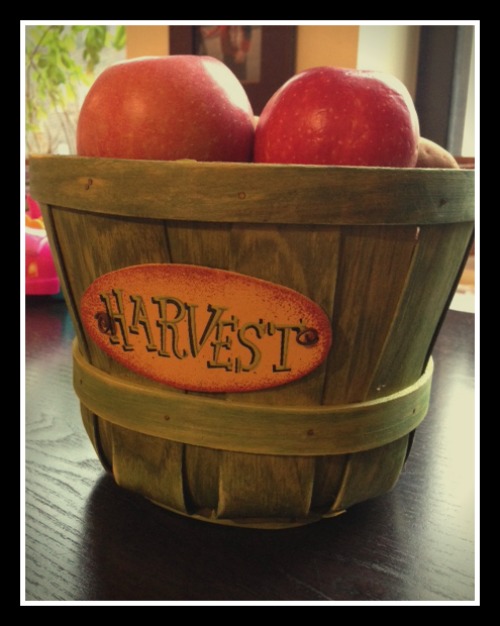 In the Jewish religion, Saturdays are the Sabbath. Saturday is the “7th day”, the day of rest, to relax and spend quality time with family and friends. Not working or stressing – you can do that the other 6 days of the week. 🙂
In the Jewish religion, Saturdays are the Sabbath. Saturday is the “7th day”, the day of rest, to relax and spend quality time with family and friends. Not working or stressing – you can do that the other 6 days of the week. 🙂
I am not very religious, but I do believe that it is important to have quality time together, time to enjoy being together as a family. I enjoy taking the kids to the children’s services at the synagogue and spending time within the community there. But on Saturday a few weeks ago I managed to overbook us, and I really wanted to do all of it! (more…)

Maman Aya is a full-time working mother of 2 beautiful children, a son who is 6 and a daughter who is two. She is raising her children in the high-pressure city of New York within a bilingual and multi-religious home.
Aya was born in Canada to a French mother who then swiftly whisked her away to NYC, where she grew up and spent most of her life. She was raised following Jewish traditions and married an Irish Catholic American who doesn’t speak any other language (which did not go over too well with her mother), but who is learning French through his children. Aya enjoys her job but feels “mommy guilt” while at work. She is lucky to have the flexibility to work from home on Thursdays and recently decided to change her schedule to have “mommy Fridays”, but still feels torn about her time away from her babies. Maman Aya is not a writer by any stretch of the imagination, but has been drawn in by the mothers who write for World Moms Blog. She looks forward to joining the team and trying her hand at writing!
More Posts

by Susie Newday (Israel) | Nov 28, 2013 | 2013, Being Thankful, Family, Israel, Multicultural, Religion, Spirituality, Susie Newday, Traditions, World Moms Blog, World Motherhood
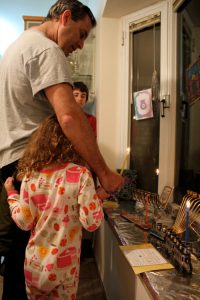 This year, we have a unique occurrence, Thanksgivvukah. (Yes, I know that by now the phrase is probably coming out of your ears.) There are debates as to whether Thanksgivukkah is a once in a 70,000 year event or a once in a decade event. Either way, the last time it happened was 1888 and I doubt any of us will be around for the next one.
This year, we have a unique occurrence, Thanksgivvukah. (Yes, I know that by now the phrase is probably coming out of your ears.) There are debates as to whether Thanksgivukkah is a once in a 70,000 year event or a once in a decade event. Either way, the last time it happened was 1888 and I doubt any of us will be around for the next one.
The Jewish month of Kislev, the month in which Chanukkah occurs, is considered a month of miracles. It’s a month that serves as a reminder to actively do something to banish the darkness from our lives and be a light unto others and the world.
Last night was the first night of the 8 day Jewish holiday of Chanukkah and tonight is the American holiday of Thanksgiving.
I’m grateful for the unique convergence of the two holidays because I think that the message of Chanukah and Thanksgiving is really the same; practice gratitude, practice kindness and be the love you wish to receive. That is the only way to banish the darkness from this world and spread the glow of goodness to the farthest corners of the earth.
So in honor of Thanksgivukkah here are some ideas for making the world a better place.
Embrace the Thanksgiving tradition of practicing gratitude, but go one step further and practice it daily. Be grateful for all the gifts in your life be they big or small.
Embrace the Chanukkah tradition of spreading your light, your inner light, far and wide. I think that the best way to combine gratitude and being a light unto the world is to get into the habit of doing acts of kindness.
So here are ideas for 8 acts of kindness for 8 days of Chanukah, or for that matter, any day of the year.
Smile at everyone you pass
A smile costs you absolutely nothing and you never know what a potentially big impact a single smile can have on someone else’s day.
Write a letter to someone who has made a difference in your life
People don’t always realize the impact they have had on someone. Why not let them know?
Give someone a big hug
People need physical contact and hugs make (most) people feel good.
Forgive someone
This is actually kindness that benefits you the most because forgiving is really for the forgiver.
Ask if you can help
Some people don’t know how to ask for help or don’t think there is anyone who can help them. It can be as simple as asking a parent with a screaming child in a grocery store if they need help or lending your expertise to someone who can benefit from it.
Offer to babysit for someone
Every parent knows that as much as we love our kids, sometimes we need some time apart. Give the gift of sanity to another parent.
Leave a note in a library book
A little note of kindness and encouragement left inside a library book can make all the difference to a struggling parent. Take a look at this amazing note my sister found tucked into the pages of a parenting book.
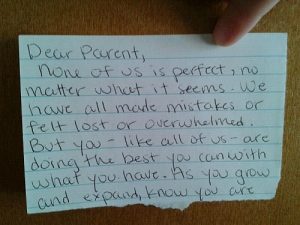
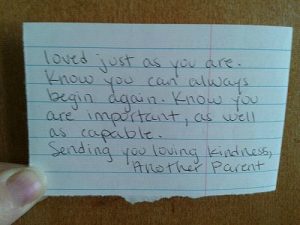
Listen, truly listen
Each and every one of us can learn how to listen better. Listen without thinking about what you are going to reply. Listen with an open mind and most importantly, an open heart. As Buddha said: “A thousand candles can be lit from the flame of one candle, and the life of the candle will not be shortened. Happiness can be spread without diminishing that of yourself.”
So Happy Chanukkah and Thanksgiving to everyone. This holiday season go out and be the light and light the way. Be the person whose act of kindness or love inspires other people to pay it forward and spread kindness and love. One person DOES have an impact, it all starts with the will to make a change.
What is your favorite act of kindness?
This is an original post by World Moms Blog Africa & Middle East Regional Editor, Susie Newday in Israel.
Photo credit to the author. (And to her sister.)
And just for fun, here is a Thanksgivukkah spoof. (If you don’t understand some of the words, they are probably in Hebrew. Just ask me in the comments and I will translate them if you want.)
Susie Newday is a happily-married American-born Israeli mother of five. She is an oncology nurse, blogger and avid amateur photographer.
Most importantly, Susie is a happily married mother of five amazing kids from age 8-24 and soon to be a mother in law. (Which also makes her a chef, maid, tutor, chauffeur, launderer...) Susie's blog, New Day, New Lesson, is her attempt to help others and herself view the lessons life hands all of us in a positive light. She will also be the first to admit that blogging is great free therapy as well. Susie's hope for the world? Increasing kindness, tolerance and love.
You can also follow her Facebook page New Day, New Lesson where she posts her unique photos with quotes as well as gift ideas.
More Posts - Website
Follow Me:






by Ecoziva (Brazil) | Oct 14, 2013 | 2013, Babies, Being Thankful, Brazil, Child Care, Childhood, Culture, Domesticity, Eye on Culture, Family, Health, Home, Inspirational, Life Balance, Maternal Health, Me-Time, Motherhood, Parenting, Religion, Spirituality, Traditions, Working Mother, World Motherhood, Younger Children
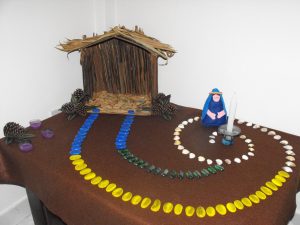 My maternity leave is now coming to an end, but throughout it a typical week day has meant about 12-14 hours alone with the kids.
My maternity leave is now coming to an end, but throughout it a typical week day has meant about 12-14 hours alone with the kids.
I usually wake up at 5:20 a.m. and my husband leaves with our eldest around six. I spend my mornings with our 2 ½ year old girl and our six month old baby boy. Our son returns from school approximately 1:30 p.m. Sometimes my husband returns early, but he usually gets home between 6 and 8 p.m. depending on traffic, his schedule, etc.
I love my kids dearly. Yet any mother knows that such a routine is not easy. On the typical day, by 6 p.m. my patience starts to wane. By nature I have a calm personality, but if there is screaming on my side, 90% of the time it will be after 6 p.m.
I once heard that 6 p.m. is one of the most difficult times of the day. On an individual level it is the time when stress peaks and on a collective level it is the time when most crime, car accidents and other such things happen. I don’t know if there is data backing that, but in a way it does make sense.
In my case, it is around 6 p.m. that the less-than-noble feelings will start to take over my mind, such as resentment, self-pity and repetitive worrying about pending work (although I have been legally on leave and have not been teaching, I did choose to maintain some activities from home). Other days I wish I could just stop working and truly be a full-time mother.
One thing that has helped is practicing acceptance and gratitude: A student sent me her research project two weeks ago and I haven’t even managed to open the file. Sorry, I am doing the best I can. My daughter has been screaming for 15 minutes in a temper tantrum. How great that she is healthy and her lungs are working! The kitchen sink is piled with dishes and the whole house is a mess. Things will get better as the kids grow older.
Of course it is easier said than done and one thing I try to do every day is to pray that my patience lasts past the kids’ bedtime.
I recently thought about how in the past it was a custom here in Brazil – a mostly catholic country – for the radios to play the Ave Maria in Latin at 6 p.m. In the small town I lived in when I was little, the Catholic church’s bells also tolled at six.
I haven’t been much of a radio listener for the past few years so I went on the web to check if the custom was still present. I learned it is a practice that has been carried out here in Brazil for the last 54 years. It comes from an old Portuguese tradition that in turn derives from the Angelus [*] – a Christian devotion recited at 6 a.m., midday and 6 p.m., which refers to Mary and the Annunciation. In simple terms, it is a time of prayer and meditation.
While reading about the 6 p.m. devotion and thinking about the emotional condition of mothers who spend the whole day alone with their children, I realized that it was the kind of practice that makes sense in the context of motherhood. After all, regardless of religion or debates on the specifics of Mary’s story, in a greater context she can be seen as a symbol of an inspiring and caring mother.
With that in mind, this week I am experimenting with short “Mary meditations” around 6 p.m. to see if it helps extend and deepen my patience and acceptance.
And you? What strategies do you use to help you face the challenges of the day-to-day motherhood routine?
[*] If there are any Catholics out there reading this and I am explaining this wrong please correct me! I was sort of raised Catholic in a Catholic country but I’m not actually Catholic, so I don’t have in-depth knowledge of the Angelus.
This is an original post to World Moms Blog from our devoted writer and mother of three in Brazil, EcoZiva.
The photo used in this post was taken by the author.
Eco, from the greek oikos means home; Ziva has many meanings and roots, including Hebrew (brilliance, light), Slovenian (goddess of life) and Sanskrit (blessing). In Brazil, where EcoZiva has lived for most of her life, giving birth is often termed “giving the light”; thus, she thought, a mother is “home to light” during the nine months of pregnancy, and so the penname EcoZiva came to be for World Moms Blog.
Born in the USA in a multi-ethnic extended family, EcoZiva is married and the mother of two boys (aged 12 and three) and a five-year-old girl and a three yearboy. She is trained as a biologist and presently an university researcher/professor, but also a volunteer at the local environmental movement.
More Posts

 We read about it as young children in folklore and fairy-tales. If we grew up in religious homes, we were taught about various aspects of it, without a full understanding of what it all meant. While I have a different outlook at this stage in my life, I try to shield my children from the pain of it. We can all agree that death (or the idea of dying) is scary.
We read about it as young children in folklore and fairy-tales. If we grew up in religious homes, we were taught about various aspects of it, without a full understanding of what it all meant. While I have a different outlook at this stage in my life, I try to shield my children from the pain of it. We can all agree that death (or the idea of dying) is scary.






 In the Jewish religion, Saturdays are the Sabbath. Saturday is the “7th day”, the day of rest, to relax and spend quality time with family and friends. Not working or stressing – you can do that the other 6 days of the week. 🙂
In the Jewish religion, Saturdays are the Sabbath. Saturday is the “7th day”, the day of rest, to relax and spend quality time with family and friends. Not working or stressing – you can do that the other 6 days of the week. 🙂












